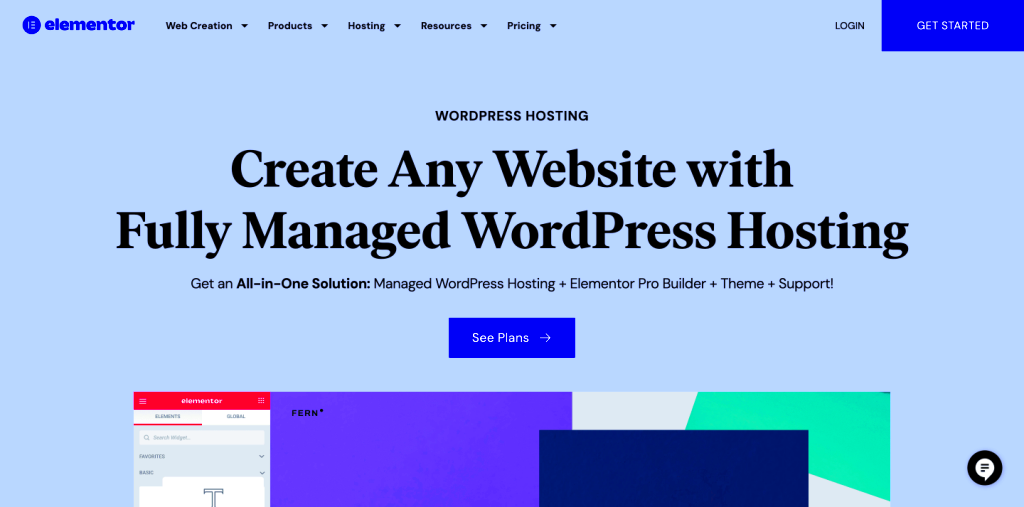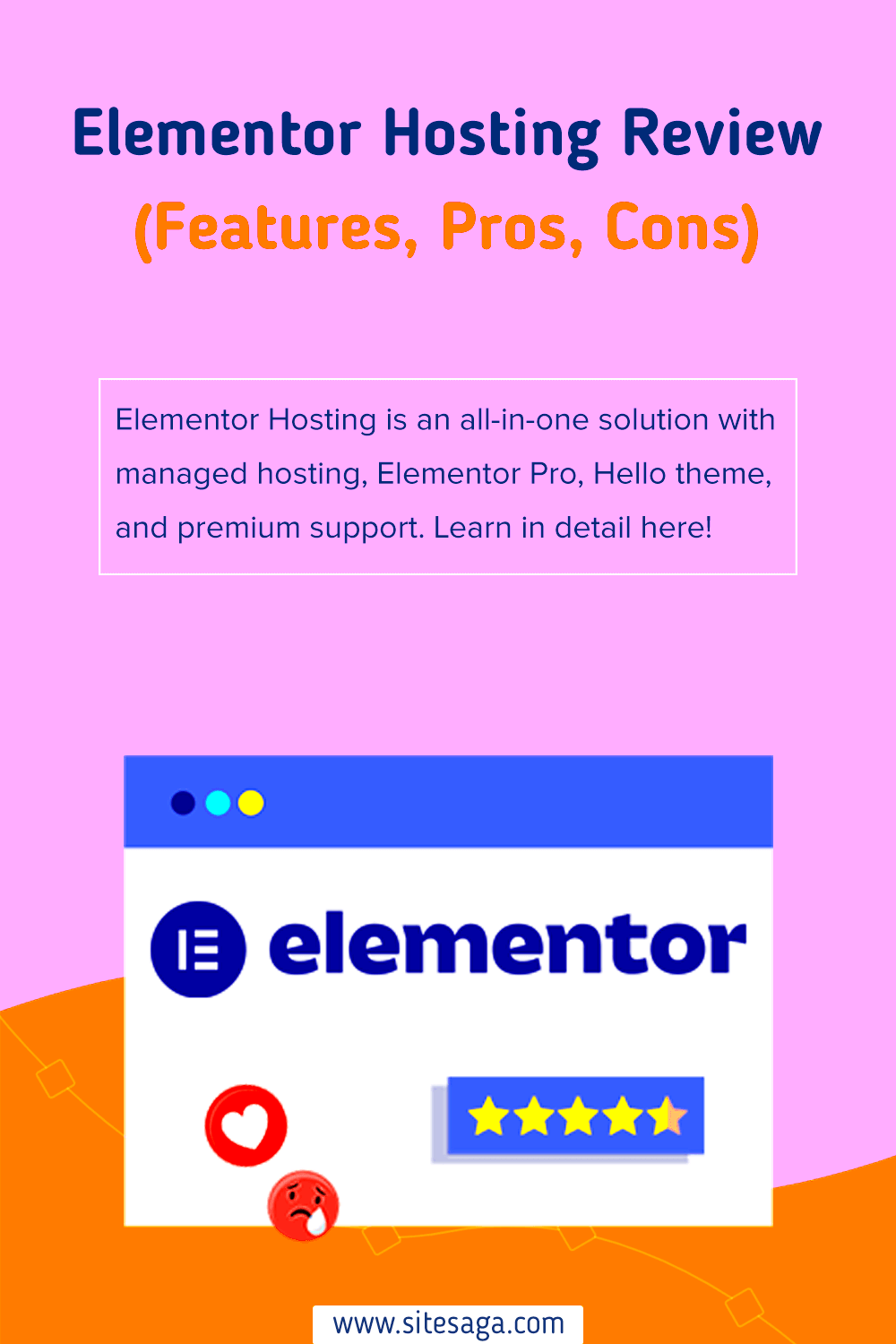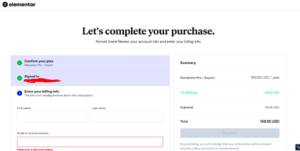If you’re diving into the world of web development, you’ve likely heard about Elementor, a popular page builder for WordPress. But have you ever wondered about Elementor Static Hosting? In recent years, static hosting has garnered attention for its speed and efficiency. Let’s unpack what that means and explore if it’s the right choice for your next project.
What is Static Hosting?

Static hosting refers to a type of web hosting where websites are served to users in their static form, meaning the content doesn’t change in response to user interactions. Unlike traditional server environments that generate dynamic pages on-the-fly, static sites are pre-rendered, making them faster and more reliable.
Here are some key features of static hosting:
- Speed: Since static websites consist of fixed code and assets, they load quickly. This enhances user experience and can improve SEO rankings.
- Simplicity: Static hosting setups are generally straightforward, requiring less maintenance and fewer resources.
- Security: With fewer entry points for attacks compared to dynamic sites, static hosting is often considered more secure.
- Cost-effective: Hosting static files can be cheaper, as it demands less server power and bandwidth.
Static hosting is typically a great option for:
- Portfolios
- Blogs with lower interactivity
- Landing pages and promotional sites
However, it’s not a one-size-fits-all solution. For instance, if your website requires real-time updates or user login functionalities, static may not be the best fit. In such cases, dynamic hosting solutions might be more appropriate. So, understanding your project’s needs will help you determine if static hosting, especially with Elementor, is worth considering.
Advantages of Using Elementor Static Hosting

When considering whether Elementor Static Hosting is worth your time, it’s crucial to weigh its numerous advantages. Not only does this hosting option cater specifically to Elementor users, but it also brings a suite of benefits that can significantly enhance your website-building experience. Here are some of the standout advantages:
- Speed and Performance: Static hosting means that your website is served as pre-rendered HTML files. This minimizes load times, significantly improving user experience and potentially boosting your search engine ranking.
- Simplified Management: With static hosting, there’s no need to deal with regular updates, software installations, or server configurations. This means you can focus on creating and designing your site rather than worrying about technical details.
- Increased Security: Static sites are less vulnerable to common security threats like database attacks because they don’t rely on dynamic content. This can provide peace of mind, especially if you’re managing sensitive information.
- Cost-Effectiveness: Many static hosting providers offer competitive pricing models, which can make it a more budget-friendly option for individuals and small businesses looking to establish an online presence.
- Easy Scalability: Static sites can easily handle spikes in traffic, from sudden social media surges to seasonal events. Static hosting accommodates varying traffic without the need for extensive server adjustments.
All in all, Elementor Static Hosting can provide a highly efficient, secure, and cost-effective solution for your web presence, particularly if you’re ready to embrace the efficiency of static sites.
Potential Drawbacks of Elementor Static Hosting

While Elementor Static Hosting comes with a myriad of benefits, it’s also essential to acknowledge its potential drawbacks. Understanding these limitations can help you make a more informed decision that aligns with your specific needs. Here are some of the key drawbacks to consider:
- Lack of Real-Time Updates: Since static sites are pre-rendered, any changes you make won’t be reflected on the website until you manually regenerate and re-upload the HTML files. This means that if you need to update content frequently, it can become a bit cumbersome.
- Limited Functionality: While Elementor is great for creating visually appealing sites, some functionalities—like complex data interactions or dynamic content—are not as feasible with static hosting. If your site relies heavily on user submissions or interactions, this approach might fall short.
- Dependency on Plugins: To achieve full functionality, you might find yourself reliant on third-party plugins or services. That can complicate the ecosystem and may lead to compatibility issues or increased costs.
- Learning Curve: For those not familiar with static site generators or hosting, there can be a bit of a learning curve. While Elementor is user-friendly, transitioning to static hosting might require additional technical knowledge.
- SEO Concerns: Dynamic content can help with SEO score improvements, especially with Google’s emphasis on fresh, engaging material. Static hosted sites might lag if you don’t consistently update them.
While Elementor Static Hosting can be a great fit for many, it’s vital to evaluate these drawbacks and determine whether they align with your website goals.
5. Comparing Static Hosting to Traditional WordPress Hosting
When it comes to web hosting, the choices can be quite overwhelming. One popular option gaining traction is static hosting, particularly with tools like Elementor. So, how does it stack up against traditional WordPress hosting? Let’s break it down.
Performance: Static hosting serves pre-built HTML files directly from a Content Delivery Network (CDN). This results in blazing-fast load times since there’s no server-side processing needed. In contrast, traditional WordPress hosting dynamically generates pages with PHP and SQL, which can slow things down, especially during traffic spikes.
Scalability: With static hosting, scaling is as simple as serving more static files through a CDN. As your traffic grows, you won’t face the same server limitations typical of traditional hosting, where shared resources can often become a bottleneck.
Security: Static sites are inherently more secure. They don’t rely on databases or server-side scripting, reducing vulnerabilities like SQL injection attacks. Traditional WordPress sites often require regular updates and maintenance to keep security issues at bay.
Maintenance: Static hosting offers a “set it and forget it” approach. With fewer components to manage, you spend less time on maintenance compared to traditional WordPress hosting, which requires regular updates to plugins, themes, and the core software.
SEO & User Experience: Both options can be optimized for SEO, but static sites often have an edge in speed, which search engines favor. User experience improves with quicker load times, translating into lower bounce rates and higher engagement.
In conclusion, while traditional WordPress hosting has its advantages, especially for complex sites, static hosting is looking like a compelling choice for those who prioritize speed, security, and simplicity.
6. Key Features of Elementor Static Hosting
If you’re considering Elementor static hosting, you’ll want to know what makes it special. This hosting type is designed with a focus on performance, ease of use, and advanced features to elevate your website experience. Let’s dive into the key functionalities:
- Lightning-Fast Performance: Elementor static hosting is optimized for speed. With fast page load times aided by CDN integration, your visitors will enjoy a seamless browsing experience right from the get-go.
- Easy Deployment: Deploying your site is a breeze. With a few clicks, you can move from development to a live environment without the technical headaches typically associated with traditional hosting.
- Built-in SEO Tools: Elementor static hosting comes equipped with built-in SEO optimization features. This means you can focus on content creation while the technical side is already taken care of.
- Automatic Backups: Regularly scheduled backups ensure that you never lose your content, offering peace of mind. Traditional hosting often requires manual intervention for backups.
- Integrated Security Features: With static hosting, security measures are integrated at the core. This minimizes common vulnerabilities and provides a robust defense against attacks.
- User-Friendly Interface: Elementor’s drag-and-drop builder allows even the most novice users to create stunning web pages without any coding knowledge.
Summing it up, Elementor static hosting brings together cutting-edge features that prioritize ease of use, speed, and security in one neat package, making it a worthwhile consideration for anyone looking to enhance their online presence.
Who Should Consider Elementor Static Hosting?
If you’re contemplating whether Elementor Static Hosting is the right fit for you, it’s important to consider your specific needs and use cases. Here’s a breakdown of who might find value in this hosting solution:
- Small Business Owners: If you’re running a small business and want to create a straightforward, aesthetically pleasing website without needing to manage technical hosting details, Elementor Static Hosting is perfect for you.
- Bloggers: For bloggers who prioritize performance over complex functionalities, this hosting type can offer fast loading times, enhancing user experience and SEO.
- Digital Marketers: If you’re focused on optimization and lead generation, Elementor Static Hosting allows you to create landing pages that load quickly and engage visitors effectively.
- Designers and Creatives: If you’re a freelance designer or creative looking to showcase your portfolio, this hosting solution helps you present your work beautifully without any technical hassles.
- Business Startups: Startups that require a fresh, fast, and simple web presence to attract early customers would benefit from the straightforward setup and easy management of static hosting.
However, it’s worth mentioning that if your website demands dynamic features like complex user interactions, databases, or e-commerce functionalities, you might need a more robust solution. Static hosting excels in situations where content is primarily informative and visual, so assessing your site’s needs is crucial.
Case Studies: Success Stories and Limitations
To understand the real-world effectiveness of Elementor Static Hosting, let’s delve into some case studies that illustrate both success stories and limitations. Here’s what we’ve gathered:
| Case Study | Successes | Limitations |
|---|---|---|
| Small Business A |
|
|
| Blogger B |
|
|
| Creative Portfolio C |
|
|
Through these case studies, it’s clear that Elementor Static Hosting can lead to impressive results regarding performance and user experience, especially for the right audience. However, it’s essential to weigh these factors against its limitations to make an informed decision.
9. Best Practices for Using Elementor Static Hosting
When diving into the world of Elementor static hosting, it’s crucial to optimize your experience for efficiency and performance. Here are some best practices to ensure you get the most out of your static site:
- Optimize Your Images: Large images can slow down your website. Use tools like TinyPNG to compress your images without losing quality. This will improve loading times and enhance user experience.
- Minify CSS and JavaScript: Minification reduces file sizes by removing unnecessary characters like whitespace and comments. Tools like Minifier can help with this.
- Leverage Caching: Since static hosting means your content doesn’t change frequently, effective caching can dramatically speed up your site. Make sure to configure caching settings to optimize performance further.
- Limit Plugins: Static sites perform best with minimal plugins. Unnecessary plugins can bloat your site. Keep only the essentials to ensure a quicker load time.
- Test Regularly: Use tools like Google PageSpeed Insights to regularly test your site’s performance. This will help you identify areas for improvement.
- Backup Your Content: Always have a backup of your site. Even in a static environment, things can go wrong. Regular backups ensure that you can quickly restore functionality if needed.
By implementing these best practices, you can create a streamlined, efficient, and fast-loading website using Elementor static hosting. Happy building!
10. Conclusion: Is Elementor Static Hosting Right for You?
As we wrap up our exploration of Elementor static hosting, the pivotal question remains: is it the right solution for your needs? Let’s break it down.
Consider Your Goals: If you’re looking to create a website with primarily static content—like a portfolio, landing page, or a blog where posts don’t change frequently—Elementor static hosting can be an ideal choice. It offers speed, reliability, and simplicity.
Think About Your Technical Skills: While Elementor is user-friendly, static hosting might still pose a challenge if you’re unfamiliar with web development. However, if you’re comfortable with basic maintenance, it could be a rewarding venture.
Evaluate Performance Needs: Static sites typically load faster and handle traffic spikes more smoothly than dynamic sites. If performance is critical—especially for eCommerce sites or high-traffic blogs—static hosting is definitely worth considering.
Budget Considerations: Finally, weigh the cost. While Elementor static hosting can be cost-effective in the long run, initial investment and ongoing maintenance should fit comfortably within your budget.
In conclusion, Elementor static hosting can be a fantastic option for the right audience. If your goals align with the benefits it offers, you might just find it’s the perfect fit for your web presence!



